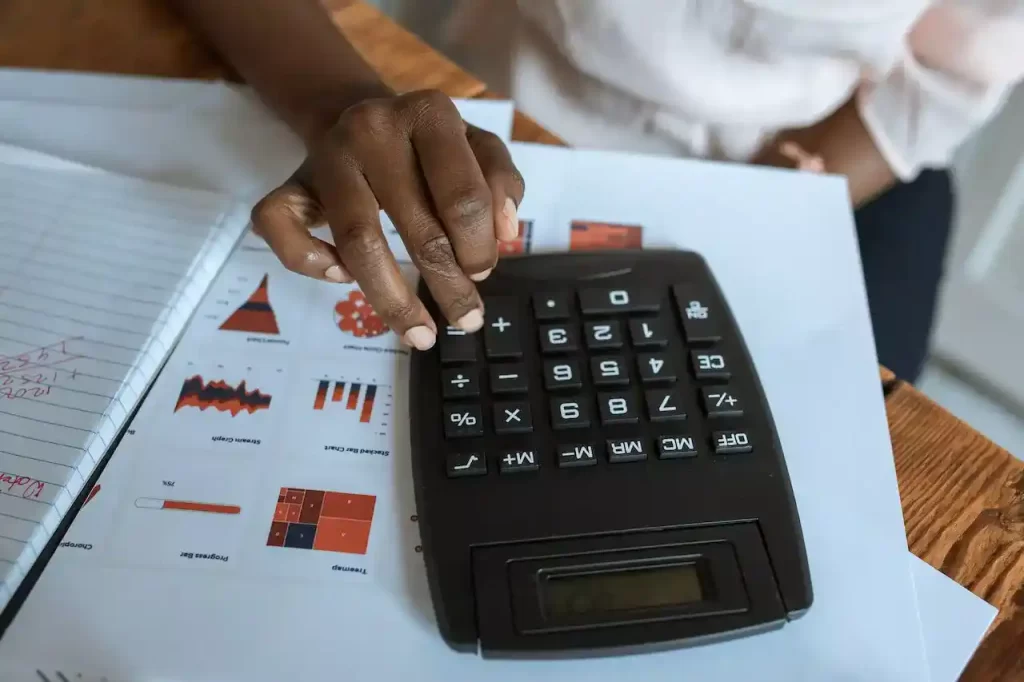If you’re a low income earner, you know that managing your finances can be tough. But don’t worry – budgeting can help! In this practical guide, we’ll show you how to take control of your money and make the most of every dollar.
So why is budgeting so important, especially for low income earners? Well, the truth is that many low income households face significant financial challenges.
For example, did you know that more than 40% of American households struggle to afford basic necessities like food, housing, and healthcare? That’s a lot of people who could benefit from a little budgeting know-how!
But don’t let those statistics get you down. By creating a budget and sticking to it, you can start making progress toward your financial goals, no matter how modest they may be. Whether you’re saving for a rainy day or trying to pay off debt, budgeting is a powerful tool that can help you take charge of your finances and build a brighter future. So let’s get started!
Assess Your Income and Expenses
When you’re living on a low income, every dollar counts. That’s why it’s so important to have a clear understanding of your income and expenses. By taking the time to assess your finances, you can identify areas where you might be overspending, as well as opportunities to save.
So, how do you get started? Well, the first step is to track your expenses. There are plenty of tools you can use for this – from smartphone apps to good old-fashioned pen and paper. The key is to find a method that works for you and stick with it. Personally, I like to use a spreadsheet to track my expenses, but you might prefer something else.
Once you’ve got your tracking method sorted, it’s time to start recording your expenses. Be sure to include everything – from rent and utilities to food and transportation. It can be helpful to divide your expenses into categories, like “essentials” (i.e. things you absolutely need to pay for) and “discretionary” (i.e. things you could cut back on if necessary).
By tracking your expenses in this way, you’ll start to get a better sense of where your money is going each month. You might be surprised to find that you’re spending more than you realized on certain things – but don’t worry, that’s all part of the process. The important thing is to be honest with yourself about your spending habits.
Some common expenses that low income earners may have include rent, utilities, transportation (including gas or public transit), and food. Of course, everyone’s situation is different, so your expenses may look a little different. The key is to identify your own priorities and make a plan that works for you.
Set Realistic Financial Goals
Now that you’ve assessed your income and expenses, it’s time to set some financial goals. But here’s the thing – it’s important to make sure your goals are achievable and realistic. Otherwise, you’ll just end up feeling discouraged and frustrated.
So, what kinds of goals should you be setting? Well, it really depends on your own personal situation. Some common financial goals for low income earners might include saving for emergencies, paying off debt, or saving up for a specific purchase (like a new appliance or car).
Once you’ve identified your goals, the next step is to prioritize them. Which ones are most important to you? Which ones do you need to focus on first? It can be helpful to break your goals down into short-term (i.e. achievable within the next few months), medium-term (i.e. achievable within the next year or so), and long-term (i.e. achievable in a few years or more) goals.
Once you’ve prioritized your goals, it’s time to create a plan to achieve them. This might involve setting up a savings plan (like putting aside a certain amount of money from each paycheck), finding ways to reduce your expenses (like cutting back on eating out or canceling subscriptions you don’t use), or even finding ways to increase your income (like taking on a part-time job or selling items you no longer need).
The key is to start small and build momentum over time. Don’t be discouraged if you can’t achieve all your goals right away – the important thing is to keep moving forward and making progress, no matter how small. By setting achievable goals and creating a plan to achieve them, you’ll be well on your way to a brighter financial future.
You can also click here reduce your taxes with this simple guide.
Create a Budget
Now that you’ve assessed your income and expenses and set some realistic financial goals, it’s time to create a budget. A budget is simply a plan for how you’re going to allocate your money each month. By creating a budget, you can ensure that you’re spending your money in a way that aligns with your goals and priorities.
To create a budget, start by looking at the information you gathered in Section 1 and Section 2. Take a close look at your income and expenses, and think about how you can allocate your money in a way that helps you achieve your financial goals.
When budgeting on a low income, it’s important to prioritize your necessities (like rent, utilities, and food) and cut back on discretionary spending wherever possible. This might mean cooking at home more often, finding free or low-cost activities to do with friends and family, or canceling subscriptions you don’t use.
There are plenty of tools and templates available online that can help you create a budget. Some popular options include apps like Mint or YNAB (You Need A Budget), as well as simple spreadsheet templates you can find for free online. The key is to find a tool or template that works for you and your unique situation.
Your budget doesn’t have to be perfect – the important thing is to get started and make adjustments as needed. By creating a budget and sticking to it, you’ll be able to take control of your finances and work towards achieving your financial goals.
Stick to Your Budget
Creating a budget is one thing, but sticking to it can be a whole different challenge. Life happens, unexpected expenses pop up, and it can be tough to resist the temptation to overspend. But don’t worry – there are strategies you can use to help you stay on track.
One strategy is to track your expenses carefully. This can help you identify areas where you might be overspending or where you can cut back. There are plenty of budgeting apps and tools available that can make tracking your expenses easy and even automated.
Another strategy is to use cash instead of credit whenever possible. It can be easy to overspend when you’re using a credit card, but when you’re using cash, you’re more likely to be mindful of your spending. Try withdrawing a set amount of cash each week or month and using that for your discretionary spending.
If you’re struggling to stick to your budget, consider finding ways to increase your income. This could mean taking on a side hustle, asking for a raise at work, or exploring other ways to earn extra money. Remember, the more money you have coming in, the easier it will be to stick to your budget.
Finally, if you’re feeling discouraged or overwhelmed, remember that budgeting is a process. It’s okay if you slip up or make mistakes – what’s important is that you keep trying.
Celebrate your successes, no matter how small, and don’t be too hard on yourself when things don’t go according to plan. By staying committed and motivated, you can achieve your financial goals and take control of your finances.
Conclusion
Budgeting on a low income can be challenging, but with some careful planning and commitment, it’s definitely possible. In this article, we’ve covered some key steps to help you get started, including assessing your income and expenses, setting realistic financial goals, creating a budget, and sticking to it.
Remember, budgeting is a process, and it may take some time to get the hang of it. But by using the tips and strategies outlined in this article, you can take control of your finances and work towards your financial goals.
If you’re looking for additional resources or tips, there are plenty of options available. Consider checking out financial blogs or websites, or talking to a financial advisor or counselor. Many local community centers and non-profit organizations offer financial education programs as well.
Most importantly, don’t forget that budgeting is a powerful tool that can help you achieve your financial goals and improve your overall well-being. By taking control of your finances and making intentional choices about how you spend and save your money, you can create a brighter and more secure future for yourself and your loved ones.





